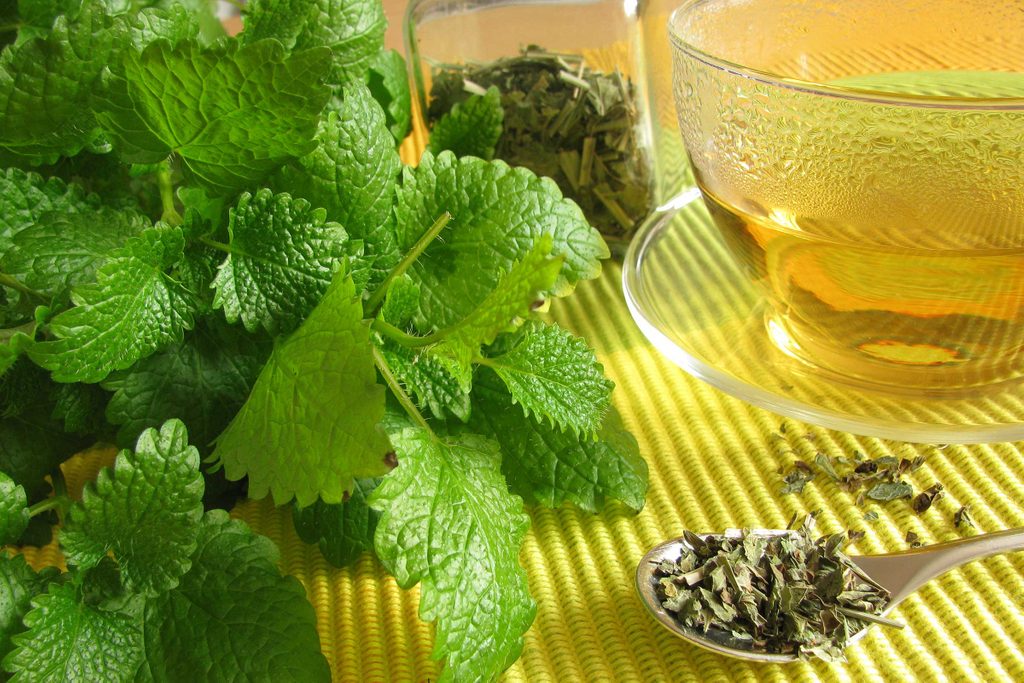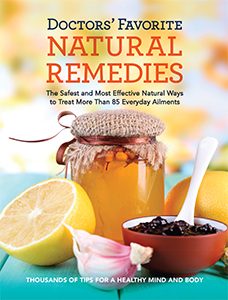Lemon Balm Uses: A Calming Herb to Soothe Anxiety
Updated: Jul. 22, 2016
Use this herb in the form of tea, capsules, oils, and creams to help with anxiety, wounds, or insect bites.

This perennial herb from the mint family derived its official name from the Greek word for “bee,” its tiny white flowers attracting multitudes of the honey-makers. The plant exudes a strong, lemony scent when the leaves are crushed and it produces a relatively expensive essential oil that is valued in aromatherapy for its uplifting and calming qualities.
Lemon balm tea has been used since the Middle Ages to reduce stress and anxiety, and improve sleep. Steeped in wine, it was used to lift spirits, heal wounds and treat insect bites.
How Lemon Balm Works
Small laboratory trials suggest that lemon balm contains chemicals that may have antiviral, antioxidant, and calmative properties. The leaves of the plant contain terpenes—which play some role in its perceived calming effect—and tannins, which may be responsible for its antiviral properties.
How to Use Lemon Balm
Lemon balm comes in many forms. It can be bought as a dried leaf, as a tea, in capsules, extracts, tinctures and oils, and as an ingredient in creams and lotions. The herb can also be easily grown.
Fresh cuttings of lemon balm, steeped in boiling water for a couple of hours and then chilled, can be drunk as a tea to help calm shredded nerves. Alternatively, to make lemon balm tea, add 2 cups of boiling water to about 1 oz. of dried lemon balm leaves and infuse for up to 10 minutes.
Lemon balm is often used along with other herbs, such as German chamomile, fennel and peppermint, to ease an upset stomach and digestive problems such as nausea, bloating, flatulence and infant colic. Tests suggest that taking an extract of lemon balm orally for four months could reduce agitation and improve the symptoms associated with mild to moderate Alzheimer’s disease.
Lemon balm may also be helpful in treating herpes. In one study, when a lip salve containing 1 percent lemon balm was applied four times a day to cold sores, healing time was reduced and it might also have helped to prevent the infection from spreading. Another study found that applying a highly concentrated extract of lemon balm cream to oral and genital herpes hastened healing.
When the oil is used in aromatherapy, it is said to lift the mood and relax the body. Mixed with valerian in a tea or capsule, some studies suggest it is an ally against insomnia.
When using lemon balm extract, capsules or any other type of product, follow label instructions or take as professionally prescribed.
Safety First
Lemon balm essential oil should not be taken internally. Fresh or dried lemon balm is safe when consumed in food and has been safely used in research for up to four months. When taken as an extract or capsule, it can cause nausea, vomiting, abdominal pain, dizziness and wheezing.
Lemon balm has not been widely tested during pregnancy or breastfeeding so it is best avoided or used only under medical supervision during these periods.
Where to Find Lemon Balm
Lemon balm products are available in health food stores, some supermarkets, or from a qualified herbalist.

Get More Natural Remedies Doctors Approve!
The book Doctors’ Favorite Natural Remedies offers effective ways to treat more than 85 health conditions and evaluates the most commonly used alternative therapies and supplements. Learn more and buy Doctors’ Favorite Natural Remedies here.